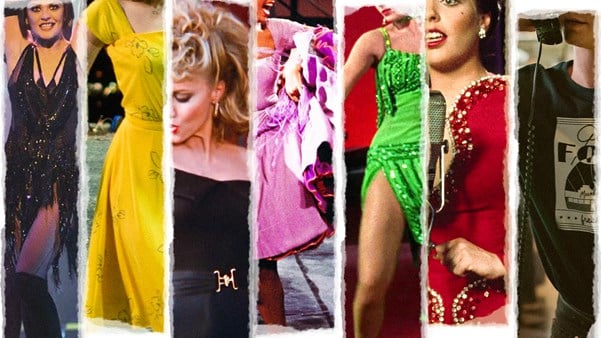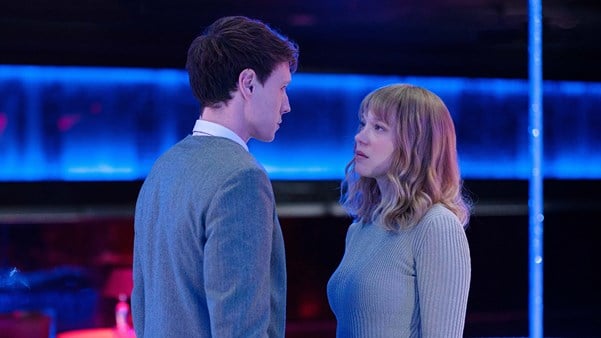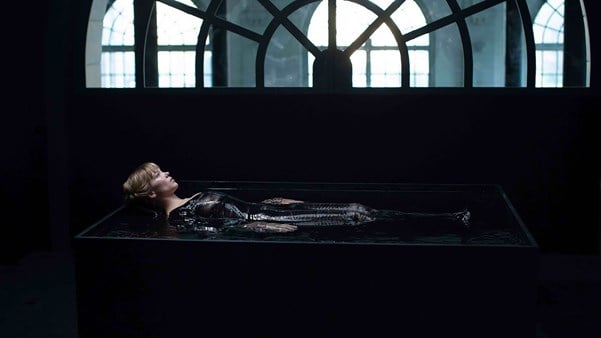In Joshua Oppenheimer’s post-apocalyptic musical The End, George MacKay plays Son, the isolated adult-child of Mother (Tilda Swinton) and Father (Michael Shannon), who was born into a luxurious bunker where he and his wealthy family have been living for over 20 years. They fill their days by rearranging rescued art pieces, practising emergency drills, building dioramas of America and writing the memoirs that will exonerate Father – who made his money in fossil fuels – to any future readers. When a vulnerable interloper arrives (Girl, played by Moses Ingram), the family's meticulously curated mythology threatens to unravel. The star of 1917 (2019), Femme (2023) and The Beast (2024), MacKay discusses the value of creativity, what his character smells like and falling in love at the end of the world.

Rógan Graham: You’ve worked on a lot of films with original scripts. Is originality what draws you to a project?
GEORGE MACKAY: Yeah, originality is a huge thing. I understand that the wheels of the industry must turn, and certain safer bets are part of that, but it’s important we remember the beauty of our own thoughts and creativity. In terms of picking projects, it’s gut instinct, who’s involved and the process. I just want to continue learning and getting better, so if the nature of the piece means I have to work in a different way, that’s always really exciting.
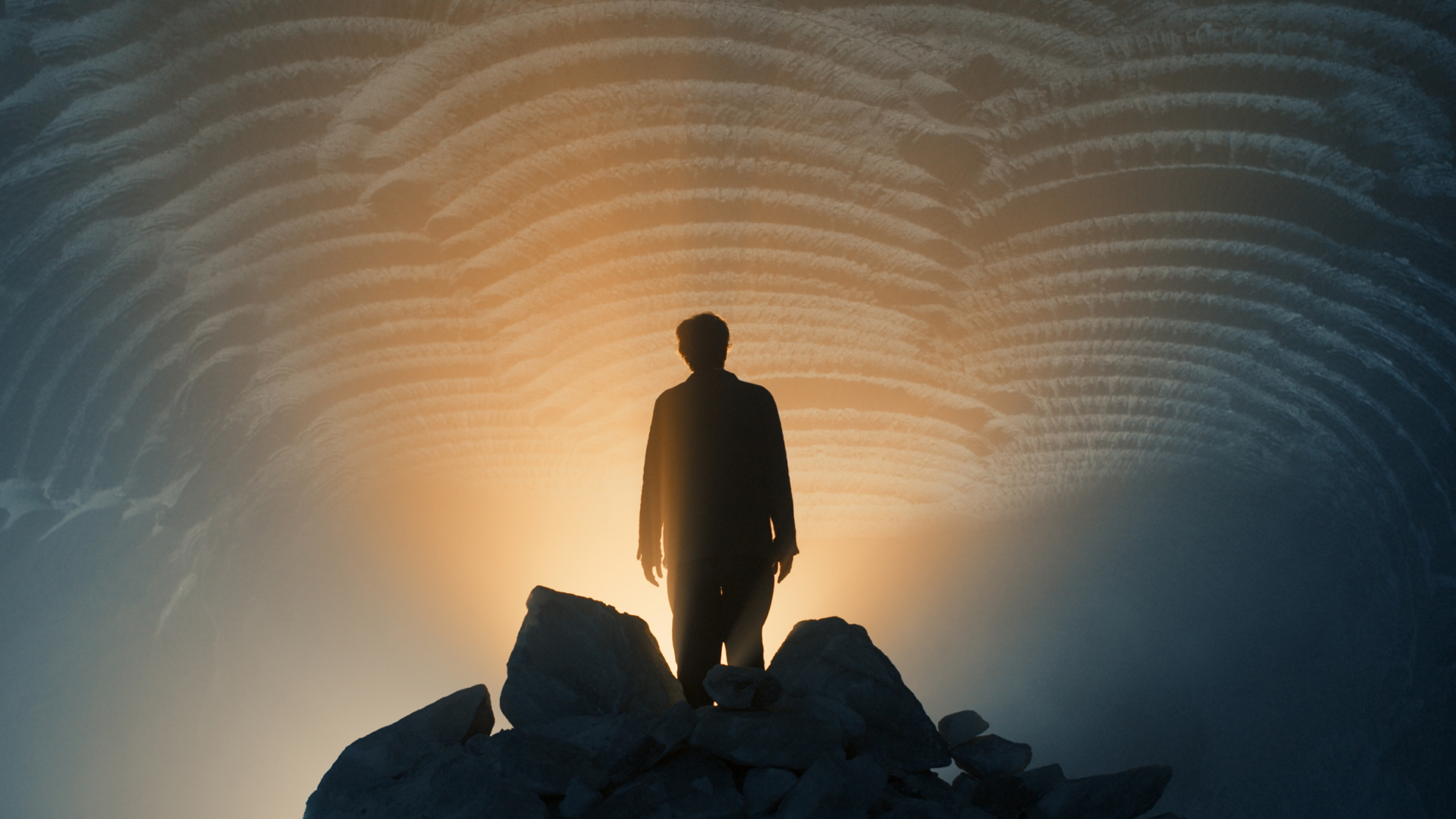
RG: The containment of the bunker gives the film a theatrical quality. Was there a rehearsal process on The End?
GM: It was very much like a theatre rehearsal actually. We had four weeks to be together, and the spine of that process was to choreograph the musical numbers. It was always understood that the bulk of them would be captured in one take. Mikhail [Krichman], our DoP, and Josh Oppenheimer, our director, had been thinking about this and storyboarding for a long time before we came to rehearsal. Aside from that, we were rehearsing scenes and discussing the script, plus there was a lot of singing and dancing training for the musical aspect.
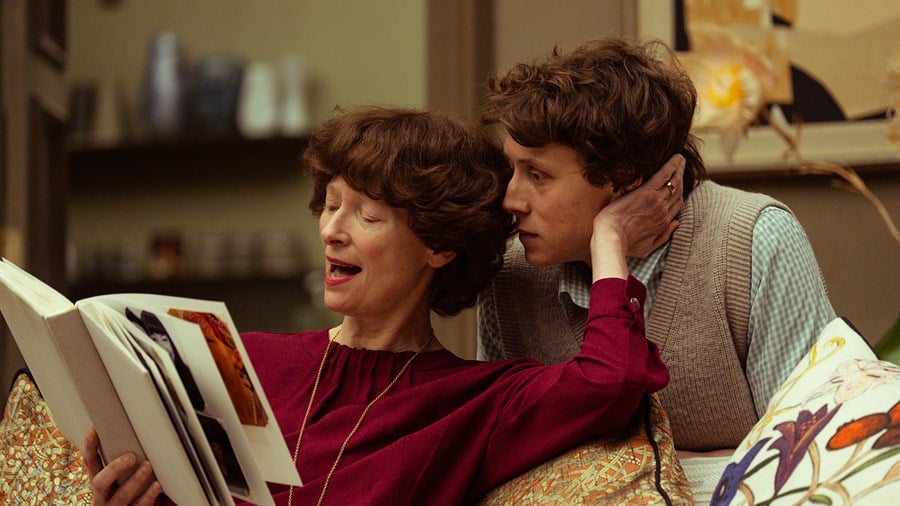
The End (2024)
RG: Oppenheimer’s documentaries [2012’s The Act of Killing, 2014’s The Look of Silence] clearly have an interest in the myths we tell ourselves, and the lies Son has been raised to believe tap into this theme. Getting to the truth of who the family were pre-apocalypse is like opening a Russian doll. How do you approach a character with those kinds of delusions?
GM: It’s funny you describe it like a matryoshka doll, because I view it as a tartan – patterns upon patterns upon patterns of storylines, lyrics and music. Some of the musical refrains are character themes that come back in songs, and characters repeat melodies from other characters. It’s a beautifully constructed echo chamber.
But in terms of playing someone like Son, who is so delusional, the key was being really rigorous in figuring out what he knows at his core. In some ways, he is the most ignorant. He has no experience of life outside, and therefore is totally at the mercy of all the lies he’s told. Yet there is this innate purity about him – it feels like he’s a radar for truth. Then the question is, is he actually believing it, or is he pretending to believe it for his family? If he isn’t completely convinced, how does he mask that? I had to ask myself whether it was relevant to show that or play it completely straight.
Josh and I discussed this for a long time before filming. There was even one version of it where I was interested in Son’s physicality. We had this idea that maybe he had ‘truth Tourettes’ – when a lie was told he would physically react. It started out big then was distilled to a twitch or a blink.
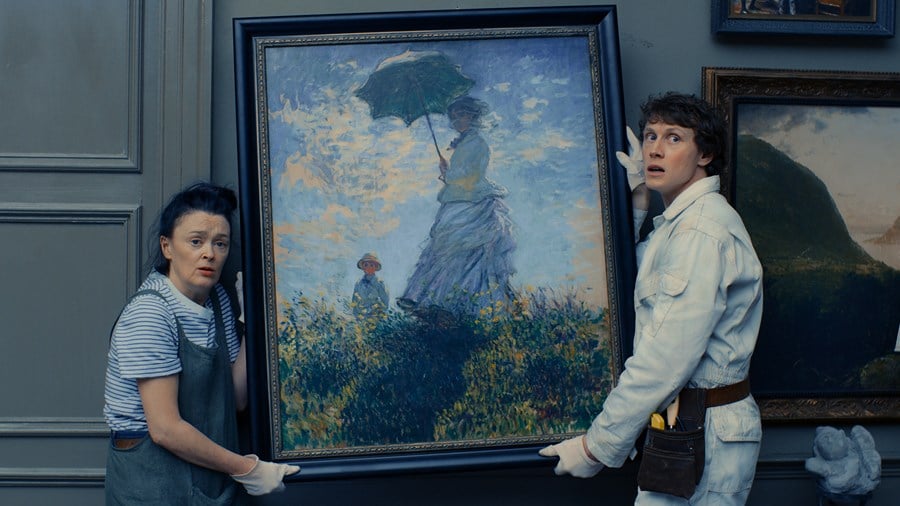
The End (2024)
RG: On the physicality, there’s a Bambi-like newness to the way you move as Son.
GM: He’s essentially a child because he’s inexperienced, but he’s also decided to keep himself small for the benefit of Mother. Their relationship is contingent on that. When Girl comes into the mix, he doesn’t want to be that anymore. I told Josh I thought Son smells like burning plastic because he reminded me of the Scalextric cars I used to have – when you ran them too much, you’d get that coppery plastic burning smell. He’s on this track, and he can’t go any faster because he’s burnt out and synthetic and a bit unreal.
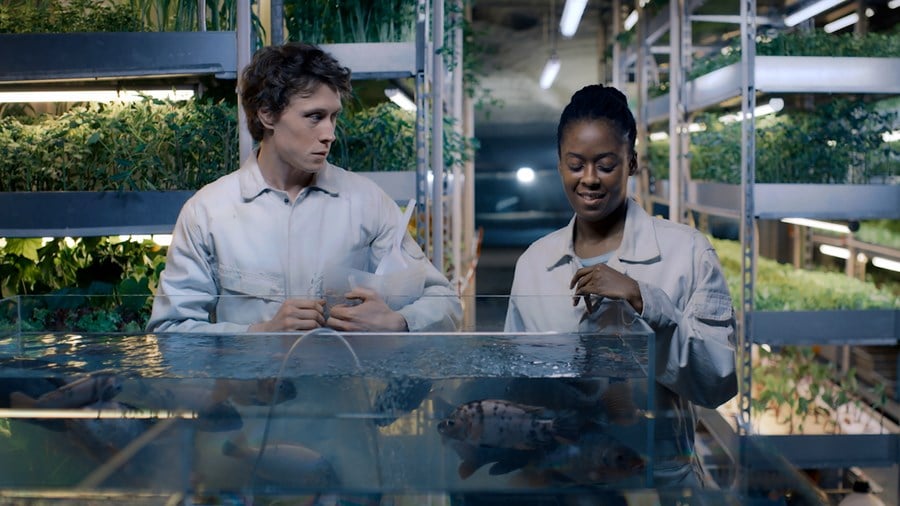
The End (2024)
RG: Girl is initially greeted with hostility, but soon she and Son fall in love. Since Son has never seen another person before, how did you conceive of their romance?
GM: Moses and I had lots of discussions on the nature of their love. For Son, it’s very simple, there’s a chemical reaction. But there’s also the cerebral love – Girl represents possibility and the future. Up until now, Son was the end of the family line in this bunker. Girl changes that. Is that love, though, or just the idea of love? Girl, too, is asking herself if Son is a match for her. How can these two people come together, given how the family behaves when she enters their space and what they represent to the outside world? The amalgamation of both Son’s perspective and Girl’s turns their relationship into something much more nuanced.
WATCH THE END IN CINEMAS


